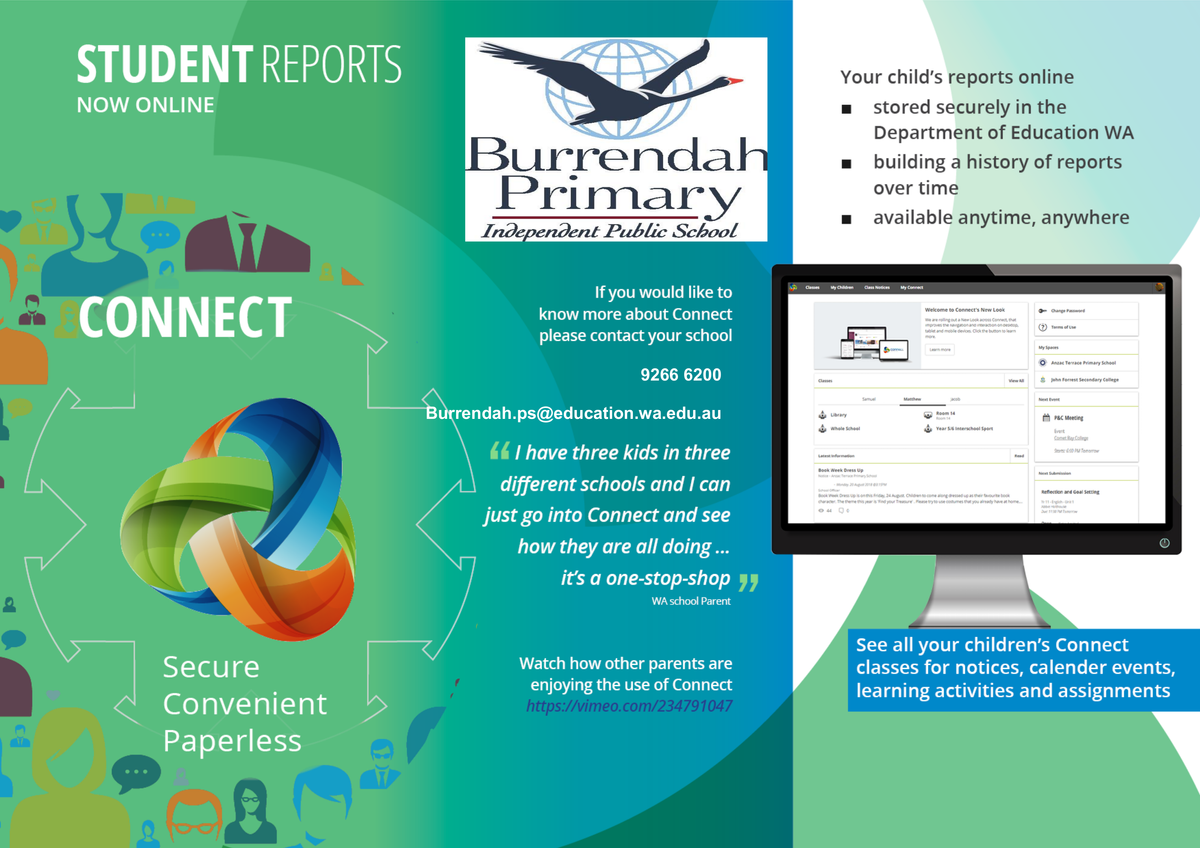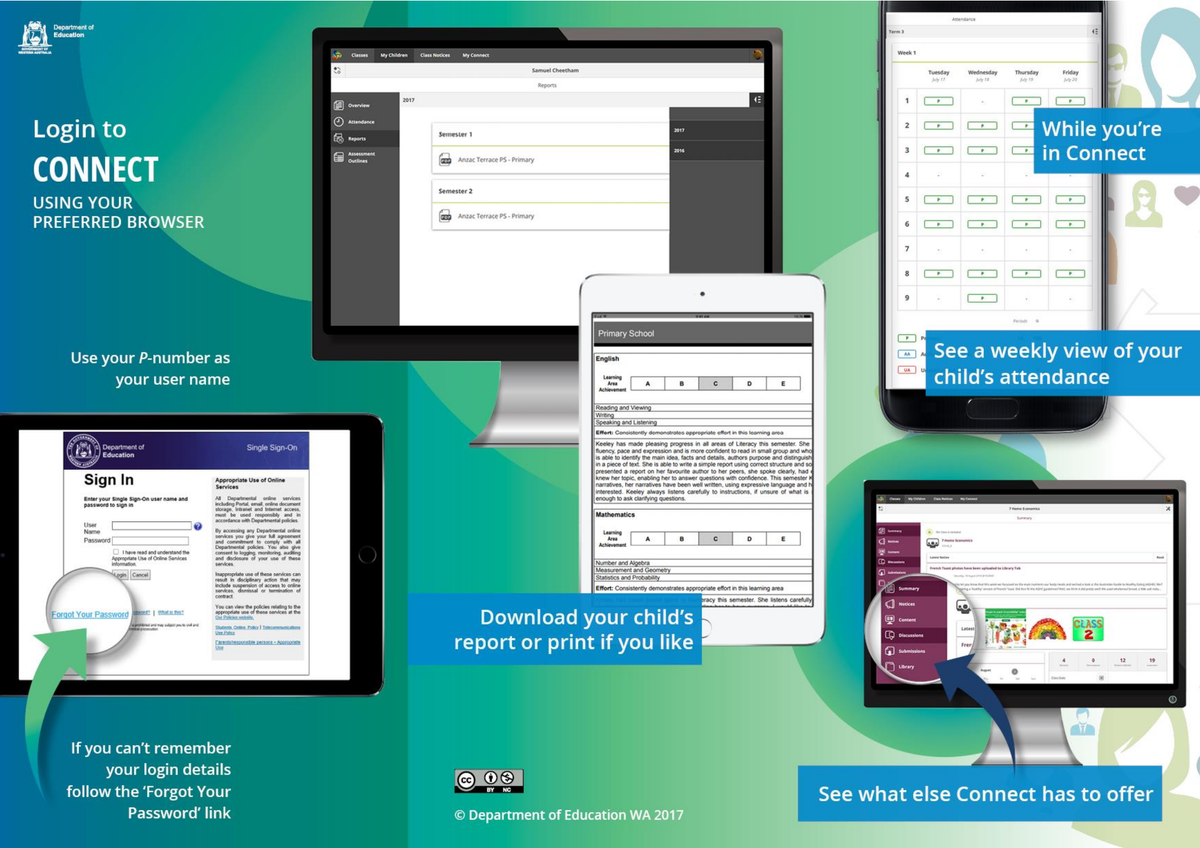School News

CONNECT - School Reports
Semester 1 Student School Reports, were uploaded to CONNECT on Friday 26th Junefor you to view. If you are having any problems viewing your child's report please refer to the following overview.
From our School Nurse
Dental health - Keep your child's teeth healthy
What is tooth decay?
Tooth decay is a diet-related disease that damages teeth.
Tooth decay happens when germs in the mouth create a sticky covering called plaque on the tooth surface. These germs feed on sugars in food and drinks and produce an acid that damages the tooth surface. Over time, this acid eats away at the surface of the tooth, creating holes or ‘cavities’.
Tooth decay can cause pain and infection. It can even affect children’s growth. Severe decay in baby teeth can have serious consequences for your child’s nutrition, speech, and jaw development.
The longer tooth decay is left untreated, the more your child will experience:
- pain and discomfort
- a higher risk of new decay in other baby and adult teeth
- more complicated and expensive treatment
- anxiety when he visits a dentist
- loss of time at school.
Tooth decay is also called dental caries.
Signs of tooth decay
Early tooth decay can be hard to spot. The first sign of tooth decay is when teeth develop a dull, white band along the gum line (the area at the base of the teeth, near the gums). You might also see brown spots on the teeth, and the gums might be red and swollen.
With more advanced tooth decay, you might notice blackened holes in the teeth or broken teeth. If the decay has led to an infection, you might notice lumps or pimples on the gums or swelling around the gums and face.
Tooth decay prevention: three key steps
There are three key steps your child can take to prevent tooth decay:
- Brush teeth twice a day, using fluoride toothpaste.
- Eat a healthy, low-sugar diet, and develop healthy eating habits.
- Have regular dental check-ups with the dentist.
Healthy foods and drinks to prevent tooth decay
- Cleaning teeth isn’t a guarantee against tooth decay. The types of food and drink you give your child also affect dental health and the development of tooth decay.
- Children need a wide variety of healthy foods and snacks. Foods and drinks that are low in sugar are best. Avoid giving your children sweet biscuits or cakes. If your child does eat something sweet, drinking a glass of water can reduce the amount of acid on your child’s teeth.
Other ways to avoid tooth decay
- Being a role model
You can set a good dental health example for your child by brushing your own teeth twice a day, limiting your sugar intake, and being positive about going for dental check-ups. - Bottle-feeding
It’s recommended that you don’t settle your child in bed with a bottle of milk. Settling children to sleep with bottles can lead to tooth decay. This is because there’s less saliva in your child’s mouth to protect her teeth during sleep, so milk can build up and eat away at the enamel. - Sports and Sugary drinks
The acidity and sugar in sports and sugary drinks can cause decay and damage your child’s teeth, particularly if your child drinks them regularly. This can lead to permanent damage to your child’s teeth and further dental treatment.
It’s best for your child to avoid these drinks, and to drink plenty of water instead. If drinking sugary and sports drinks, it’s good to rinse with water straight away and to brush teeth with a fluoride toothpaste about an hour later.


